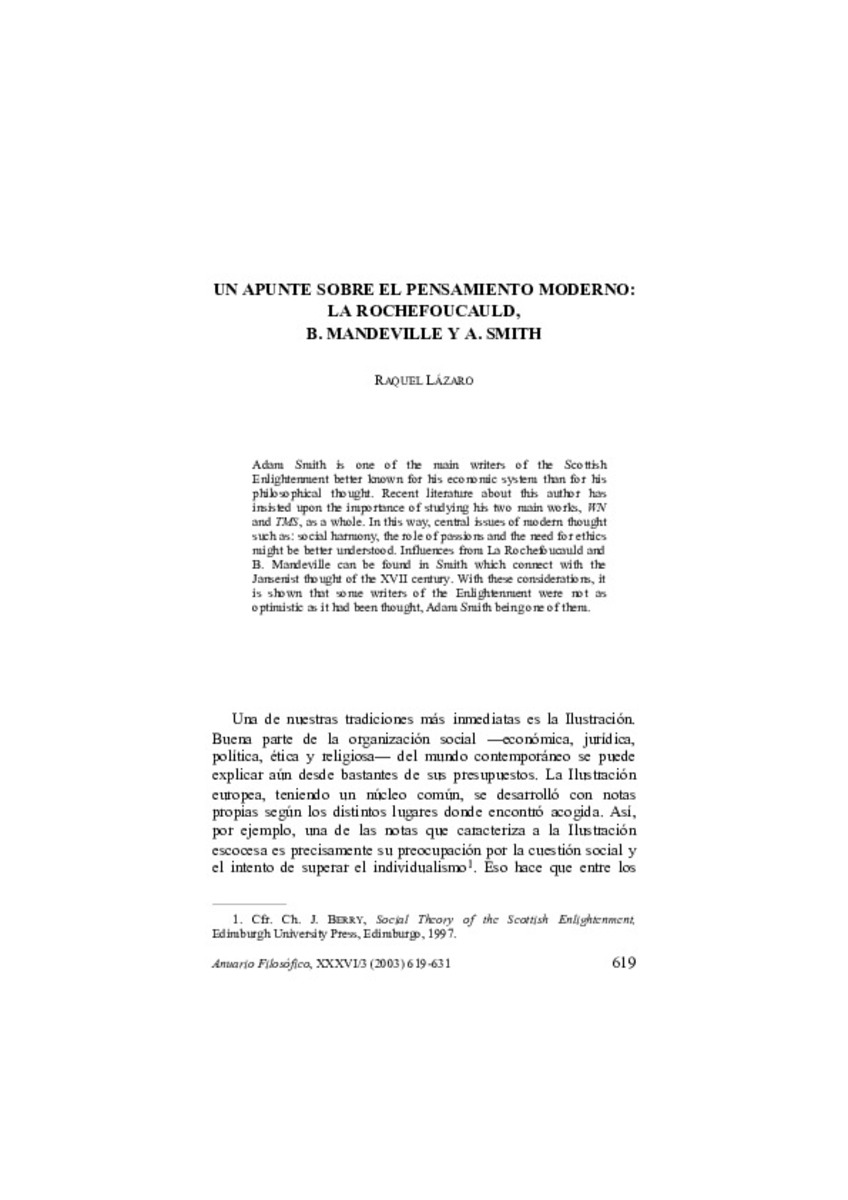Full metadata record
| DC Field | Value | Language |
|---|---|---|
| dc.creator | Raquel | |
| dc.date.accessioned | 2009-10-14T09:58:33Z | - |
| dc.date.available | 2009-10-14T09:58:33Z | - |
| dc.date.issued | 2003 | - |
| dc.identifier.citation | Anuario Filosófico, 2003 (36), 619 - 631 | es_ES |
| dc.identifier.uri | https://hdl.handle.net/10171/4404 | - |
| dc.description.abstract | Adam Smith is one of the main writers of the Scottish Enlightenment better known for his economic system than for his philosophical thought. Recent literature about this author has insisted upon the importance of studying his two main works, WN and TMS, as a whole. In this way, central issues of modern thought such as: social harmony, the role of passions and the need for ethics might be better understood. Influences from La Rochefoucauld and B. Mandeville can be found in Smith which connect with the Jansenist thought of the XVII century. With these considerations, it is shown that some writers of the Enlightenment were not as optimistic as it had been thought, Adam Smith being one of them. | es_ES |
| dc.language.iso | spa | es_ES |
| dc.rights | info:eu-repo/semantics/openAccess | es_ES |
| dc.rights | info:eu-repo/semantics/openAccess | es_ES |
| dc.subject | Filosofía moderna | es_ES |
| dc.subject | Smith, Adam | es_ES |
| dc.subject | La Rochefoucauld, François de | es_ES |
| dc.subject | Mandeville, Bernard | es_ES |
| dc.title | Un apunte sobre el pensamiento moderno: La Rochefoucauld, B. Mandeville y A. Smith | es_ES |
| dc.type | info:eu-repo/semantics/article | es_ES |
| dc.identifier.doi | 10.15581/009.36.29407 | es_ES |
Files in This Item:
Statistics and impact
Items in Dadun are protected by copyright, with all rights reserved, unless otherwise indicated.






